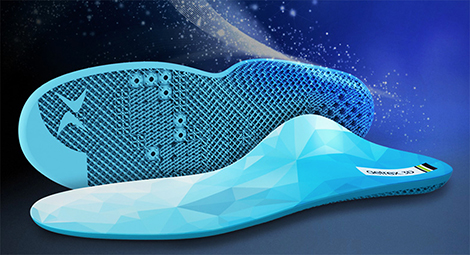
A hub of technologies, orchestrated by EOS is looking to connect CAD, materials, part qualification, and additive manufacturing to replace foams used in a wide variety of industries.
The benefits of 3D printed foam-like structures mean that materials can be custom tuned for purpose for superior comfort, safety, and performance characteristics.
“The level of engineering required to produce, say, a safer football helmet is massive, but the benefits are equally massive for end users,” said Dr. Greg Hayes, senior vice president of applied engineering at EOS North America. “The Digital Foam program was designed to make those huge improvements much easier and less time-consuming for organisations.”
Software vendor nTopology has joined the initiative. CEO Bradley Rothenberg, said: “Digital Foam accelerates the adoption of 3D printing, enabling tunable architected materials like foams. This improves upon basic applications making them exceptional — for example helmets that are not only safer, but also lighter-weight and more comfortable.”
EOS and its partner organizations will be submitting a Digital Foam entry as part of its NFL Helmet Challenge submission, competing to engineer and develop football helmets that outperform today’s models.
The winner of the NFL Helmet Challenge will be announced in May 2021, although 3D printed custom helmet liners from Carbon for Riddell, which has pioneered the use of 3D printed lattices to replace foams, have been in use in the NFL since the beginning of this season.






